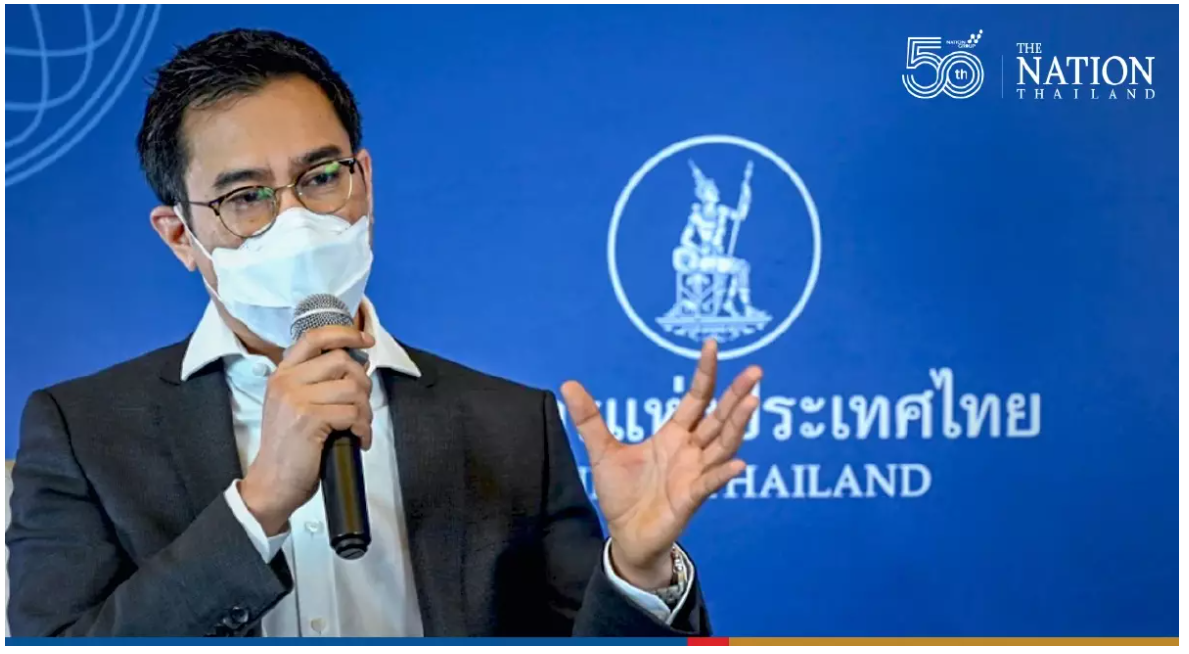Thailand: Central bank aims to tackle four expected economic risks in 2022
The Bank of Thailand (BOT) is preparing for four types of economic and financial risks that could occur in 2022 as the economy is still recovering from the impact of Covd-19, leaving many sectors vulnerable.
Speaking at BOT’s Meet the Press event on Tuesday, central bank governor Setthaput Suthiwart-Narueput said that this year economic recovery is seen to be in a K shape, where only certain sectors, industries or areas of the economy recover while others persistently lag behind.
“The Thai economy should bounce back to before Covid levels not sooner than the first quarter of 2023,” he predicted. “This is because our economy relies heavily on exports and tourism, while employment in related sectors will not bounce back anytime soon,” he believed.
“This year we are prepared for four challenges that can potentially occur – namely the Omicron outbreak, inflation, an NPL cliff, and an increase in policy rates by global central banks,” Setthaput said.
“As for the first risk, the Omicron outbreak, BOT estimates the new variant’s spread would stop within the first half of the year,” he said. “Although Omicron can spread faster than the Delta variant, it will not cause the economy to ‘halt’ for a long time. The banking system will continue to roll out more loans while the central bank will issue financial measures to make sure different sectors can maintain solvency during the outbreak,” he said.
“BOT estimates that Thai inflation in 2022 will be in an acceptable range of 1.4 to 1.7 per cent, but it could rise next year, though it won’t reach 2.0 per cent,” Setthaput said.
“Our latest survey found that the hike in product and service prices has yet to be distributed across all sectors, which means there is a small chance that inflation will cause the overall economic recovery to stumble. The central bank will however use appropriate measures to prevent inflation from growing more than the estimation,” he said.
The central bank also estimated that next year there is a small chance of an NPL cliff, or a situation where a lot of debt defaults occur in a very short time, forming a cliff of non-performing loans, or NPLs.
“As the economy still faces many uncertainties, the number of NPLs will gradually rise, but will probably not form an NPL cliff this year,” Setthaput hoped.
“To prevent an unexpected rise in NPLs, BOT will promote joint ventures between banks and asset management companies so they can help borrowers who fall behind, while making sure commercial banks have enough reserves to cover increasing defaults,” he said.
“The last risk that we might face in 2022 is a hike in policy rates by global central banks, especially the Untied States [Federal Reserve]. Such a hike would affect the economic recovery of many developing countries. However, we estimate that the effect on Thailand, should there be any, will be minimal as we still have a strong international financial status and do not suffer from structural vulnerability as during the 1997 financial crisis.”
Before closing the event, Setthaput said BOT would issue Thailand’s Financial Landscape Consultation Paper on February 2, which will include new issues such as digital assets and a green economy.
After issuing the paper, BOT will accept opinions from different groups and industries for a month before using them to draft out the country’s financial policy.
Source: https://www.nationthailand.com/business/40010992


 Thailand
Thailand




